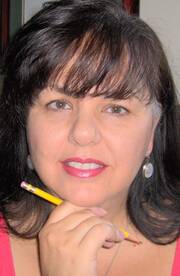|
2/25/2013 4 Comments Protecting Indigenous Knowledge © Dr. Lynn Gehl, Gii-Zhigaate-Mnidoo-Kwe Processes of colonization have been harmful to Indigenous people. Not only in terms of the denial of access to land and resources to live a good life, but also in terms of the way knowledge has been gathered, interpreted and constructed into institutions, policy, and law; as well as the process of dissemination. This colonial process of knowledge production is no longer acceptable practice as Indigenous people have had enough. There has been a paradigm shift in the academic world. Today, it is expected that Indigenous communities and people be included in defining and determining research questions, defining and determining research methodologies, and defining and determining the process of interpreting data. We are also involved in defining and determining acceptable means of disseminating the knowledge. Standards of best practices must apply. The Tri-Council Policy is a world model for ethical academic research. Chapter ten of the policy is dedicated to offering guidelines regarding research with Indigenous communities and people. Interestingly, the Tri-Council Policy clearly states that it does not override or replace the ethical guidelines that sovereign Indigenous Nations have in place – both oral and written. As such, in many situations it is necessary for researchers to undergo two research ethics review processes before moving ahead in their research. The Mi’kmaw Ethics Watch is one such Indigenous body which assures Mi’kmaw Indigenous knowledge is both respected, and protected from outsiders doing harmful and interfering research. If you are in a cyber-net community conducting research of any kind without the full and informed consent of the people, you are engaging in unethical research practices. Keep in mind here that community is no longer defined as on the ground. Rather, it is more broadly defined. While it may be argued that news reporting research is not bound to the rules of the Tri-Council Policy, but rather the rules of journalism where knowledge and information obtained in public settings such as social media outlets is publishable by law, this rationale is poorly and incorrectly applied to Indigenous communities, Indigenous knowledge, and Indigenous intellectual property. In this situation the laws and policies of Indigenous Nations − again, both oral and written codes of ethics − override the rules of western journalism. Further to this, Article 31 of the United Nations Declaration on the Rights of Indigenous Peoples, an international norm that has force, states: “Indigenous peoples have the right to maintain, control, protect and develop their cultural heritage, traditional knowledge and traditional cultural expressions, as well as the manifestations of their sciences, technologies and cultures, including human and genetic resources, seeds, medicines, knowledge of the properties of fauna and flora, oral traditions, literatures, designs, sports and traditional games and visual and performing arts. They also have the right to maintain, control, protect and develop their intellectual property over such cultural heritage, traditional knowledge, and traditional cultural expressions.” For news reporters to enter into our spaces, communities, cyber-net communities included, and mine our minds and experiences for knowledge, while at the same time not asking Indigenous people for guidance in shaping the research, or asking for guidance in how the research should be disseminated; and further to gain economically from the knowledge yet give nothing back to the people, is unethical. Furthermore, for a news reporter to argue otherwise based on the rules of western journalism as the rationale that guides their work is unethical, not to mention an oxymoron. Let’s face it, if you are truly interested in serving Indigenous people, and our needs and our knowledge, it makes no sense to simply ignore our rules and laws of ethics. Indigenous moral codes operate through an internal locus of control, meaning individuals are socialized in a way where we are expected to govern our own behaviour from the inside, rather than through external apparatus such as police, fines, written laws, courtroom proceedings, and judges. In situations where a person’s moral code is not working, community members and allies will come forward and tell you where to go, and where precisely to put your desire for knowledge, the goal being to end unethical research. The Idle No More movement gained currency through the tools of social media. Our Facebook groups, Facebook Fan Pages, and Facebook Event pages are more than simply places for you to mine for knowledge through your narrow models of research, while at the same time offer nothing back in return for the knowledge. If you are engaging in this method of research, this is analogous to the colonizer mining Indigenous land for resources where Indigenous communities gain nothing in return.  Dr. Lynn Gehl is an Algonquin Anishinaabe-kwe from the Ottawa River Valley. She has a section 15 Charter challenge regarding the continued sex discrimination in The Indian Act, she is an outspoken critic of the Ontario Algonquin land claims and self-government process, and she recently published a book titled Anishinaabeg Stories: Featuring Petroglyphs, Petrographs, and Wampum Belts. In her spare time she carves nickel-sized turtles. You can reach her at [email protected] and see more of her work at www.lynngehl.com
4 Comments
2/26/2013 04:48:43 pm
Lynn is awesome! The Bill of Responsibilities is long overdue for Indigenous peoples' communities.
Reply
Lynn Gehl
2/28/2013 01:36:32 am
Miigwetch Ellen Marie
Reply
4/13/2013 04:05:06 am
Ditto about teaching.
Reply
Terry Debassige
2/11/2014 01:24:28 am
This I believe is the essence of our societies. It is so very fragile yet produces one of the most resilient and mutually
Reply
Your comment will be posted after it is approved.
Leave a Reply. |
|
To subscribe to Lynn's Blog: click here
To subscribe to Lynn's Newsletter: click here To follow Lynn on her Public Facebook Page: click here To subscribe to Lynn's YouTube channel: click here To book Lynn as a speaker: click here To contact Lynn/License her work: click here Copyright Dr. Lynn Gehl, 2024 All Rights Reserved
|
 RSS Feed
RSS Feed
